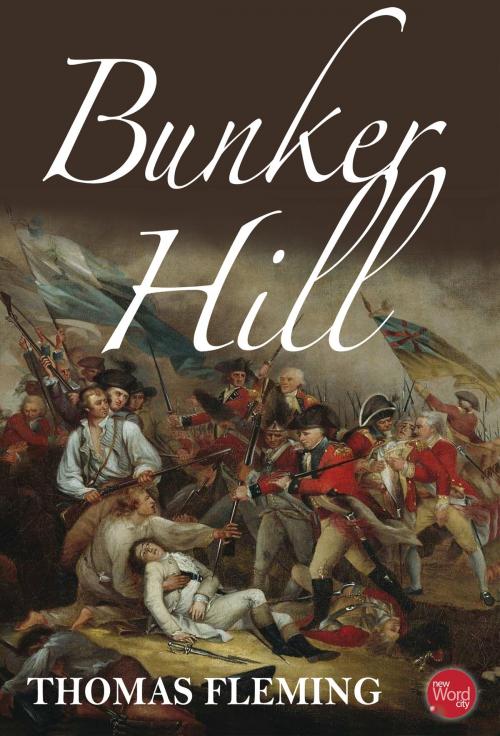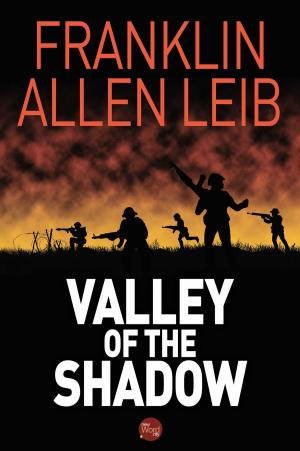Bunker Hill
Nonfiction, History, Americas, United States, Colonial Period (1600-1775), Revolutionary Period (1775-1800), Military| Author: | Thomas Fleming | ISBN: | 9781612309279 |
| Publisher: | New Word City, Inc. | Publication: | June 10, 2019 |
| Imprint: | Language: | English |
| Author: | Thomas Fleming |
| ISBN: | 9781612309279 |
| Publisher: | New Word City, Inc. |
| Publication: | June 10, 2019 |
| Imprint: | |
| Language: | English |
"Written with skill and suspense, it is an inspiring story that Americans can read with pride." - Chicago Tribune. Here, from New York Times bestselling author Thomas Fleming, is the story of that June day in 1775 that made the American Revolution inevitable. Bunker Hill brings alive the stories of the men on both sides who fought on these steep slopes in the blazing heat of June and dispels the myths and distortions which have long clouded the battle. It shows how closely and tragically intertwined were the lives of these men who from this day would call themselves either British or American. The brother of General William Howe, the British commander, had died in Colonel Israel Putnam's arms near Fort Ticonderoga. Colonel William Prescott had fought beside General William Howe at the siege of Louisburg and had been offered a commission in the Royal Army for his valor. Now, only fifteen years after their joint victories as comrades in arms, Prescott and Putnam steadied their raw American troops with harsh advice to withhold their fire on the advancing British ranks until "you can see their buttons," or "the whites of their eyes." After the British forces came ashore, the battle opened with a deftly launched flanking movement by the British right. John Stark arrived with his New Hampshire men in time to predict the point at which Howe would first attack and to seal that gap with British dead - "I never saw sheep lie as thick in the fold." Howe did not pause to maneuver but assaulted the American fortifications along the whole front. The young farmers did not give way, and the British reeled back. "There was a moment," Howe, a veteran and victor of many battles against the French in Europe and North America, recalled later, "that I never felt before." But the British doggedly advanced again up the murderous hill in the ninety-degree heat. The forces that impelled these men to that terrible moment of battle and the courage of both sides are the powerful substance of Bunker Hill.
"Written with skill and suspense, it is an inspiring story that Americans can read with pride." - Chicago Tribune. Here, from New York Times bestselling author Thomas Fleming, is the story of that June day in 1775 that made the American Revolution inevitable. Bunker Hill brings alive the stories of the men on both sides who fought on these steep slopes in the blazing heat of June and dispels the myths and distortions which have long clouded the battle. It shows how closely and tragically intertwined were the lives of these men who from this day would call themselves either British or American. The brother of General William Howe, the British commander, had died in Colonel Israel Putnam's arms near Fort Ticonderoga. Colonel William Prescott had fought beside General William Howe at the siege of Louisburg and had been offered a commission in the Royal Army for his valor. Now, only fifteen years after their joint victories as comrades in arms, Prescott and Putnam steadied their raw American troops with harsh advice to withhold their fire on the advancing British ranks until "you can see their buttons," or "the whites of their eyes." After the British forces came ashore, the battle opened with a deftly launched flanking movement by the British right. John Stark arrived with his New Hampshire men in time to predict the point at which Howe would first attack and to seal that gap with British dead - "I never saw sheep lie as thick in the fold." Howe did not pause to maneuver but assaulted the American fortifications along the whole front. The young farmers did not give way, and the British reeled back. "There was a moment," Howe, a veteran and victor of many battles against the French in Europe and North America, recalled later, "that I never felt before." But the British doggedly advanced again up the murderous hill in the ninety-degree heat. The forces that impelled these men to that terrible moment of battle and the courage of both sides are the powerful substance of Bunker Hill.















